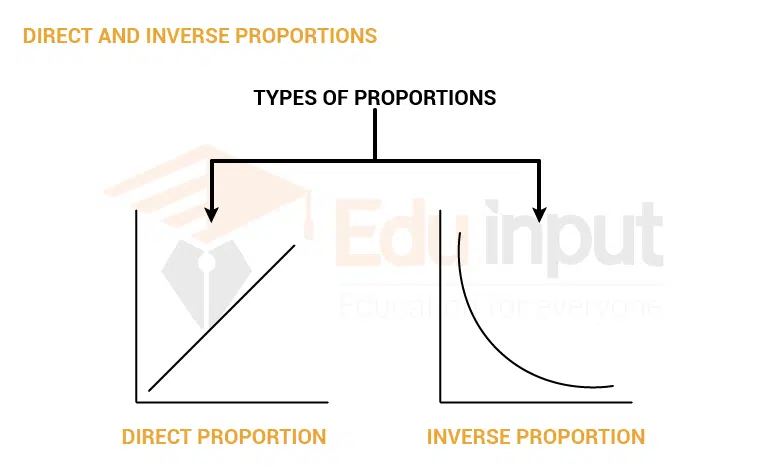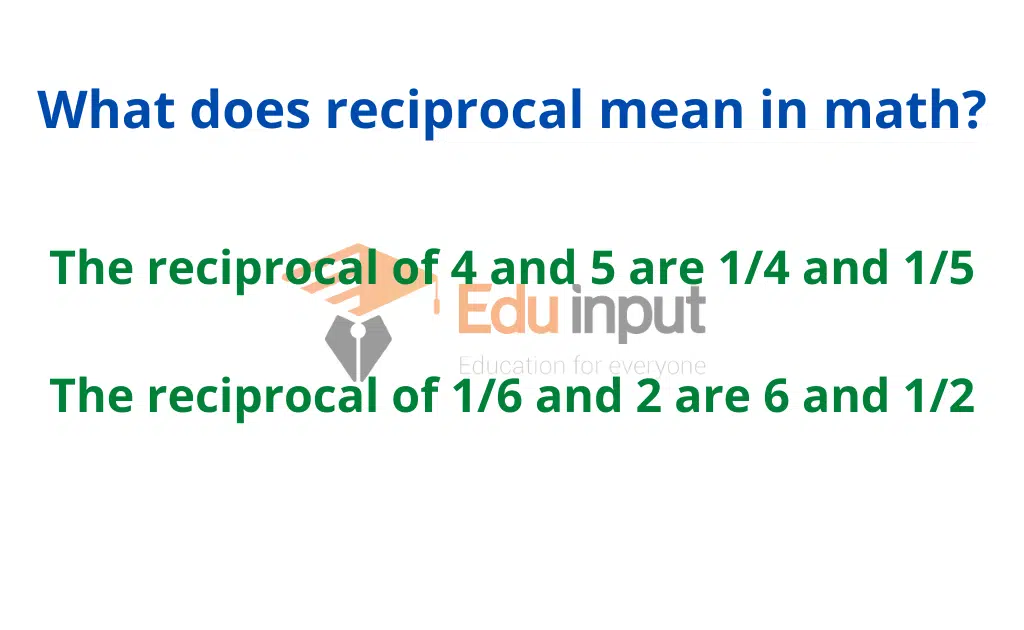Types of Proportions –Properties of Proportional
Based on the type of relationship between two or more quantities. The proportion can be Divided or classified into different types. There are 2 types of proportions.
Types of proportions
Based on the type of relationship between two or more quantities. The proportion can be Divided or classified into different types. There are 2 types of proportions.
- Inverse Proportion
- Direct Proportion

Inverse proportion
This type explains the indirect relationship between two quantities. In simple words, if one quantity decreases, the other quantity increases and vice-versa. In notation, an inverse proportion is written as
y ∝ 1/x.
For example:
If 15 workers can build a wall in 48 hours how many workers will be required to do the same work in 30 hours?
Solution:
In 48 hours wall was built by 15 workers
in 30 hours wall was built by x workers
if the time decrease, the number of workers m be an increase
number of workers and time have taken are inversely proportional
x1 y1=x y2
15×48=x X 30
15×48/30=x
24=x
in 30 hours wall was built by 24 workers.
Direct Proportion
This type explains the direct relationship between two quantities. In simple words, if one quantity decrease, or increases the other quantity also decreases or increases and vice-versa. The direct proportion is written as
y ∝ x
For example:
A motorist travels 275 km in 5 hours. how far can he travel in 9 hours at the same speed?
solution:
in 5 hours motorist travels 275 km
in 9 hours motorist travels x km
if time increases distance covered must be an increase
time and distance taken are directly proportional
km/h=km/h
275/5=x/9
275/5×9=x
55×9=x
495=x
Motorists can travel 495km in 9 hours.
Properties of proportional
Proportion equivalent relation between two ratios. The properties of proportion that is allowed by this relation:
- Addendo – If
a : b = c : d,
then
a + c : b + d
- Subtrahendo – If
a : b = c : d,
then value of each ratio is
a – c : b – d
.Dividendo – If
a : b = c : d, then
a – b : b = c – d : d
- Componendo – If a : b = c : d,
then
a + b : b = c + d : d
- Alternendo – If
a : b = c : d,
then
a : c = b: d
- Invertendo – If
a : b = c : d, then
b : a = d : c
- Componendo and dividendo – If
a : b = c : d, then
a + b : a – b = c + d : c – d
Summary
Proportion is a mathematical comparison between two numbers.
Basic proportions are of two types: inverse proportions. And direct proportions.
We can apply the concepts of proportions to dietetics geography, comparing quantities in physics, cooking, etc.





Leave a Reply